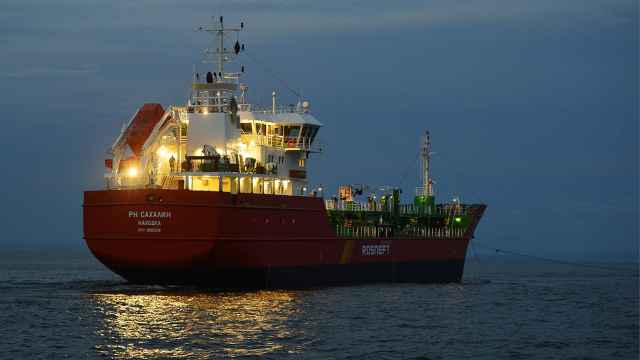During the eight years in which Vladimir Putin has ruled as president and prime minister over Russia's 140 million people, at least 2 million of them have left the country. That includes "1.25 million in the last several years," according to the somewhat fuzzy admission by Public Chamber head Sergei Stepashin.
Also during his rule, every one of Putin's fellow Ozero dacha community members has become a billionaire.
Under Putin's rule, while the country earned more than $1.5 trillion from oil exports, it did not build a single modern highway. The Amur-
Yakutsk highway — the only road connecting western and southern Russia — in many places looks like it hasn't been touched in 200 years. Even some sections of the cross-country road linking Moscow to Vladivostok have yet to be asphalted.
By comparison, China built about 5,000 kilometers of modern highway during each of those eight years and now has the world's second-largest network of modern roads after the United States.
Under Putin, the reputation of law enforcement agencies has reached a record low. According to a recent poll, only 1 percent of the population trusts the police and two-thirds are afraid of them. When a group of vigilantes in the Primorye region began shooting traffic police officers two years ago, 71 percent of the people calling in to Ekho Moskvy radio supported the violent attacks. Under Putin's rule, the cops customarily beat and harass ordinary citizens — as happened in recently in Blagoveshchensk and Bashkortostan.
With Putin at the helm, it has become the norm for privileged bureaucrats with blue flashing lights on their cars to run over pedestrians with full impunity. If relatives of the victim try to fight the system, a criminal case is often initiated against them instead of the perpetrators.
Under Putin, Russia has been reduced to paying tribute to Chechnya. Yury Budanov, who led a tank division in the second Chechen war, was shot dead on a Moscow street in retaliation for his war crimes in Chechnya. Doku Umarov, leader of a group of Chechen Islamist rebels, claimed responsibility for Budanov's killing. Meanwhile, Chechen thugs wearing slippers and toting Stechkin pistols swaggering through the hallways of the five-star President Hotel is a common sight.
What's more, the Putin bureaucracy has been remarkably ineffective at accomplishing even the modest goals it set for itself. Gazprom has lost significant market share in Europe, and Russia has yet to begin development of the Shtokman field or to build the South Stream pipeline.
Since signing the agreement to build the North Stream pipeline back in 2005, Putin has spent about $16 billion. By comparison, China closed a deal to build a pipeline with Turkmenistan in 2006 that has already been completed — and at a cost of only $2 billion. It would be no exaggeration to say the only successful project of the Putin administration has been the rebuilding of Grozny.
As of Dec. 4, it seemed as if all of this would continue for another 12 years — or until the complete destruction of Russia. But the first major protests were staged on Dec. 5. Those demonstrators — and the tens of thousands that gathered on Dec. 24 — had one simple message to communicate to their national leader: Enough is enough.
Yulia Latynina hosts a political talk show on Ekho Moskvy radio.
A Message from The Moscow Times:
Dear readers,
We are facing unprecedented challenges. Russia's Prosecutor General's Office has designated The Moscow Times as an "undesirable" organization, criminalizing our work and putting our staff at risk of prosecution. This follows our earlier unjust labeling as a "foreign agent."
These actions are direct attempts to silence independent journalism in Russia. The authorities claim our work "discredits the decisions of the Russian leadership." We see things differently: we strive to provide accurate, unbiased reporting on Russia.
We, the journalists of The Moscow Times, refuse to be silenced. But to continue our work, we need your help.
Your support, no matter how small, makes a world of difference. If you can, please support us monthly starting from just $2. It's quick to set up, and every contribution makes a significant impact.
By supporting The Moscow Times, you're defending open, independent journalism in the face of repression. Thank you for standing with us.
Remind me later.





